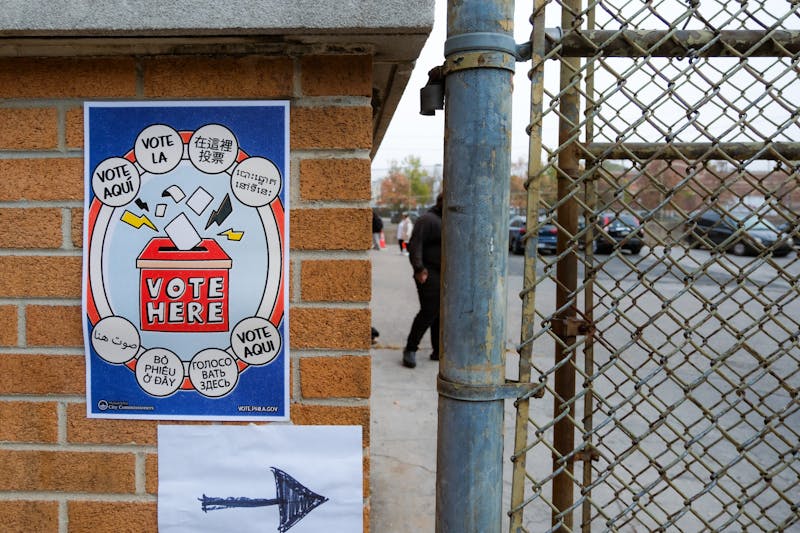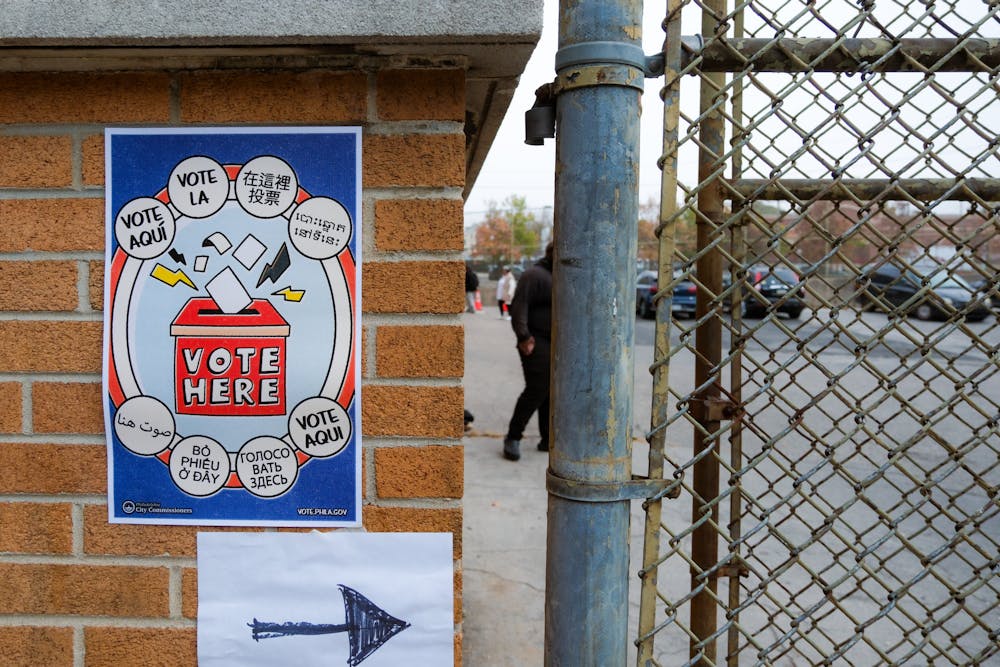Penn alumni are among the many plaintiffs in a lawsuit seeking to challenge Pennsylvania’s closed primary system that they believe illegally excludes independent voters from the primary process.
Credit: Abhiram Juvvadi
Four Pennsylvania voters have filed a lawsuit seeking to overturn the state’s closed primary system with the Pennsylvania Supreme Court, petitioners told The Daily Pennsylvanian.
The petition, filed July 15, asks the court to allow unaffiliated voters to participate in partisan primaries. Former executive director of the Fels Institute of Government David Thornburgh and 1987 University of Pennsylvania Carey Law School graduate Michael Smerconish — a longtime television and radio host — are among the voters who brought the case.
Pennsylvania is one of just nine states where both major parties fully restrict primary participation to registered members — effectively sidelining over 1.4 million independent and third-party voters across the state. The petitioners claim that Section 2812 of the Election Code, which allows only registered members of political parties to vote in primaries, violates the Free and Equal Election Clause of the Pennsylvania Constitution by failing to treat independent voters equally.
In an interview with the DP, Thornburgh classified the issue of changing the state’s closed primary system as “urgent and important.” This motivation, he said, led the voters to file a King’s Bench petition — a method of litigation that sends the case directly to the state Supreme Court, naming the Pennsylvania Department of State as the defendant.
According to a recent study by the Institute for Citizens and Scholars, 61% of young voters now identify as independents. In Pennsylvania, unaffiliated registration is on the rise even as closed primaries persist.
“If you don’t vote in the primary, you have no voice,” Thornburgh said, citing research that 91% of Pennsylvania’s legislative races are decided in primaries. He noted that the current system stems from legislation passed in 1937 and that more than 50 million independent voters have been excluded from participating since then.
“This is not some social club or sports team,” Thornburgh said. “It’s participating in the process by which people represent me, and therefore, make important decisions about what to do with my tax dollars.”
Thornburgh emphasized that political parties are trying to categorize primaries as private elections subject to their own rules while simultaneously relying on taxpayer funding and state administration to run them. By adopting open primaries in Pennsylvania, the petitioners say that elected officials would have to be more responsive to voters across the political spectrum in their districts.
Jeremy Gruber, senior vice president of Open Primaries — a nonprofit backing the legal effort — described the issue as a “crisis” of representation.
“The growth of independent voters has really accelerated so much over the past 20 years,” Gruber said in an interview with the DP. “Courts haven’t really had an opportunity to look at the impact of that in the context of principles such as equal rights and voting rights more generally.”
Gruber highlighted that litigation has historically played a vital role in expanding ballot access, noting that many landmark voting rights laws in the United States were born out of courtroom battles. He additionally pushed back against common critiques of open primaries — such as concerns over diluted party ideology or strategic crossover voting — dismissing them as fundamentally undemocratic.
“When we talk about voting rights in this country, we don’t ask about the impact of that vote,” Gruber said. “The very right to vote is the highest good we can aspire to in a democracy, and we would never ask those questions of any other group that’s denied the franchise.”
He added that a “positive decision” in favor of the “fundamental right” for independents “would be impactful, not just in Pennsylvania, but around the country.”
The lawsuit comes as various student organizations across the state mobilize in support of election reform. Harry Patton Hou, a Swarthmore College graduate and co-founder of Students for Ballot PA, wrote in a statement to the DP that his group has played “an important role in moving bills out of the House State Government Committee” and hopes to continue that momentum this fall.
“Young voters have a tendency to identify as independents,” Hou wrote. “[Students for Ballot PA] represents over a dozen colleges across the Commonwealth, meets regularly to discuss election law, and plans projects to advance bi-partisan legislation through the state legislature.”
Still, not all experts agree that allowing for increased primary participation will result in substantive political change. Penn political science professor Matthew Levendusky warned against overestimating the initiative’s impacts.
“There’s been a tremendous amount of ink spilled about the consequences of primaries, and most of the effects are null — that is, the type of primary has very little effect on policy/outcomes/etc.,” Levendusky wrote in a statement to the DP. “Reformers always want there to be ‘one quick fix’ to polarization, but it doesn’t work that way.”
Sign up for our newsletter
Get our newsletter, DP Daybreak, delivered to your inbox every weekday morning.
“One might prefer open primaries on a normative argument,” he continued. “But substantively, it is very unlikely to make much difference.”
A spokesperson for the Pennsylvania Department of State wrote to the DP that the office is “aware of the lawsuit filed and still reviewing the petition.”
If the state Supreme Court declines to take up the case, petitioners say they plan to refile in Commonwealth Court and continue advocacy through the legislature and local communities.
The Daily Pennsylvanian is an independent, student-run newspaper. Please consider making a donation to support the coverage that shapes the University. Your generosity ensures a future of strong journalism at Penn.

